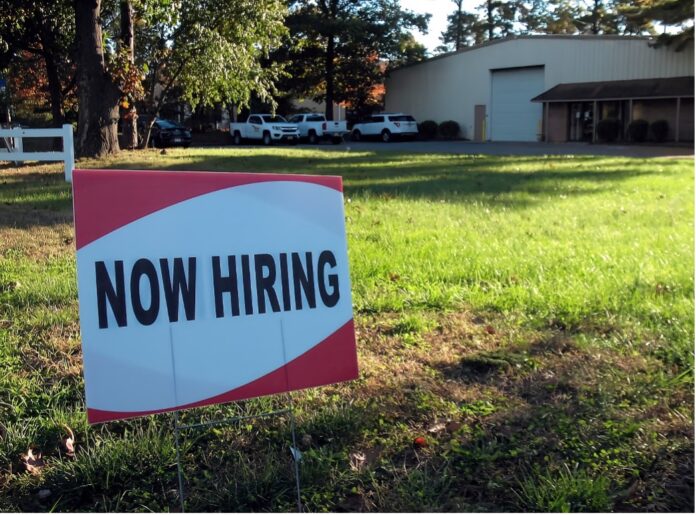Paralyzed by uncertainty created by our first global pandemic in recent memory, employers and employees hunkered down and made the best of things. Endless hours on zoom, dining rooms doing double duty as desks and virtual learning became the norm. As the world became more comfortable with a path back to a new normal, something happened that no one predicted: employees left their employers, resigning for new opportunities or no opportunity at all.
A recent Wall Street Journal podcast illuminated some of the motivators for this tsunami of voluntary terminations. During the pandemic, people had more time to ponder what they really wanted from their careers and what was missing from their current gig. But it wasn’t only about moments of reflection. With prices inching upwards, economic indicators drove many workers to reconsider whether their wages could keep up with inflation. Hourly workers found they could command $20+ per hour, in stark comparison to rates less than half previously. Not being dependent on a traditional 9-to-5 office job was put under the microscope too, leading some workers to redefine work/life integration.
HR professionals have been caught in the midst of these unanticipated dynamics. Helping to support hybrid and, sometimes, entirely remote workforces during the pandemic, now HR is working furiously behind the scenes to ensure their talent acquisition teams and hiring managers can fill open roles quickly. Questions abound though: no doubt the great resignation has been disruptive on many levels but has anyone in the organization examined what the fundamental issues were in the first place?
Values Alignment:
Culture is never built in a day or even a year. And it’s never the result of pithy sayings posted on the lunchbreak wall. It’s the collective result of living and breathing your values, day in and day out in an authentic, transparent manner than is obvious to the workforce. It’s creating safe workplaces that support inclusion and belonging.
Purposeful alignment between culture and this sense of belonging impact the employer brand as well as employee retention. Post-pandemic, people are expecting a lot from their employers. This is especially apparent in millennial and GenZ workers – who comprise the largest part of the workforce – as they prefer to work for companies that are socially aware and committed to positive change. They want to know they are making a difference, not just punching a timeclock.
On a personal note, the pandemic gave us a front-row seat into each other’s lives. Children, pets and other family members suddenly appeared on camera during calls and parents split shifts to cover childcare, education and chores. Those employers who fail to heed the important lessons from these private moments will fail miserably in the new world of work. For example, dictating 100% return to the office or attempting to roll back to 2019 management styles are surefire ways of losing great employees. Remember that respecting the individual’s contributions to the workplace – and corresponding boundaries – means meeting them where they are and how they can be most productive.
Career Advancement:
In a job seeker’s market, the employee holds the power. And, with more learning options and more consumer-grade tools at their fingertips, employees are able to own their own career paths. With heightened awareness of their options, employees walk when circumstances no longer suit them. It doesn’t mean they didn’t like their job or even their employer; with apparent opportunities, qualified talent can be attracted elsewhere.
Advancement isn’t always a rocket ship to the top. Many employees are intrigued by lateral mobility such as the chance with work on a different team or project, or even another location. Increasingly popular are “work from anywhere” models that enable employees to experience another city, state or even country while remaining fully committed to their employer. Enabling employees to gain additional expertise and experience builds loyalty and fills gaps. Intelligent career paths supported by mentors and learning opportunities can retain an employee “for life” by providing positive change that energizes and invigorates.
Money Talks:
Assumptions have been made that those resigning their jobs for other opportunities didn’t care about pay and benefits. It’s been revealed that nothing was further from the truth. Yes, most want to work for a company that cares and provides career development opportunities – that was clearly evidenced by McKinsey’s recent research. Compensation is still a big part of why we work, and the research uncovered that inadequate total comp is a top reason why workers leave and might leave again.
Let’s go back to the example of the hourly worker who can command $20/hour. As the economy rebooted post-COVID and people started traveling and eating out again, it was painfully obvious that a record high number of restaurant and hospitality workers had quit. Many of these workers weren’t making a livable wage in the first place and they weren’t inclined to resume business as usual. Sign-on bonuses and wage increases across quick-serve restaurants and hotels have become commonplace, with the waiter/waitress role reported to have a 63.7% compensation increase.
There is linkage between switching jobs and making more money. After all, a recent Gallup survey also found that better pay was the top reason people considered accepting new job offers. Plus, pay transparency is on the rise and certain states require that employers disclose wage scales or salary ranges during the hiring process. That might make changing jobs more attractive; conversely, it leaves steadfast employees wondering what’s in it for them. That’s why HR and business leaders need to make sure they are rewarding retention with the same rigor as recruiting.
Was there a silver lining to the pandemic’s disruption? While the Great Resignation might feel like the sky is falling, it has served to illuminate gaps and challenges in our workplaces. The grass isn’t always greener for employers or their employees and the great resignation is a culmination of much needed change. These changes are strong signals that the future of work isn’t what we originally projected. Watch my column for additional thoughts on what this means for HR.

